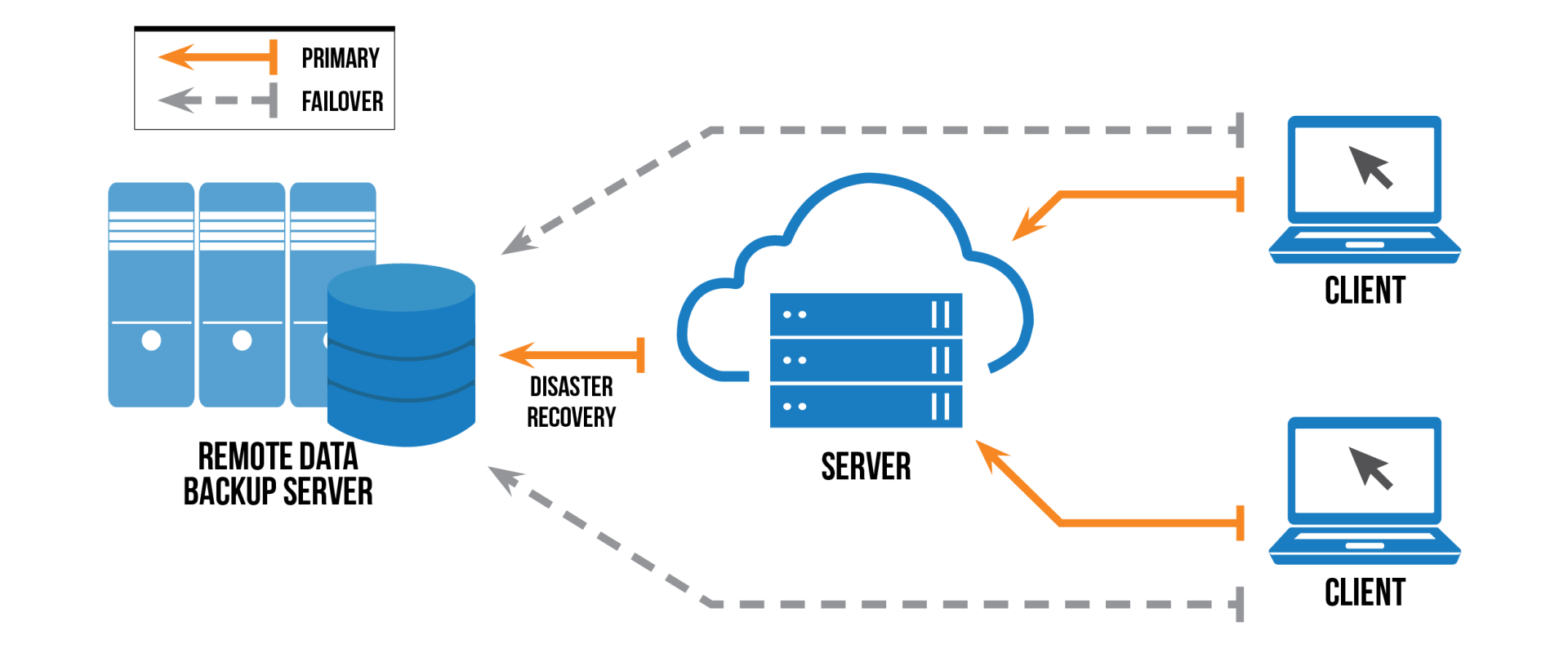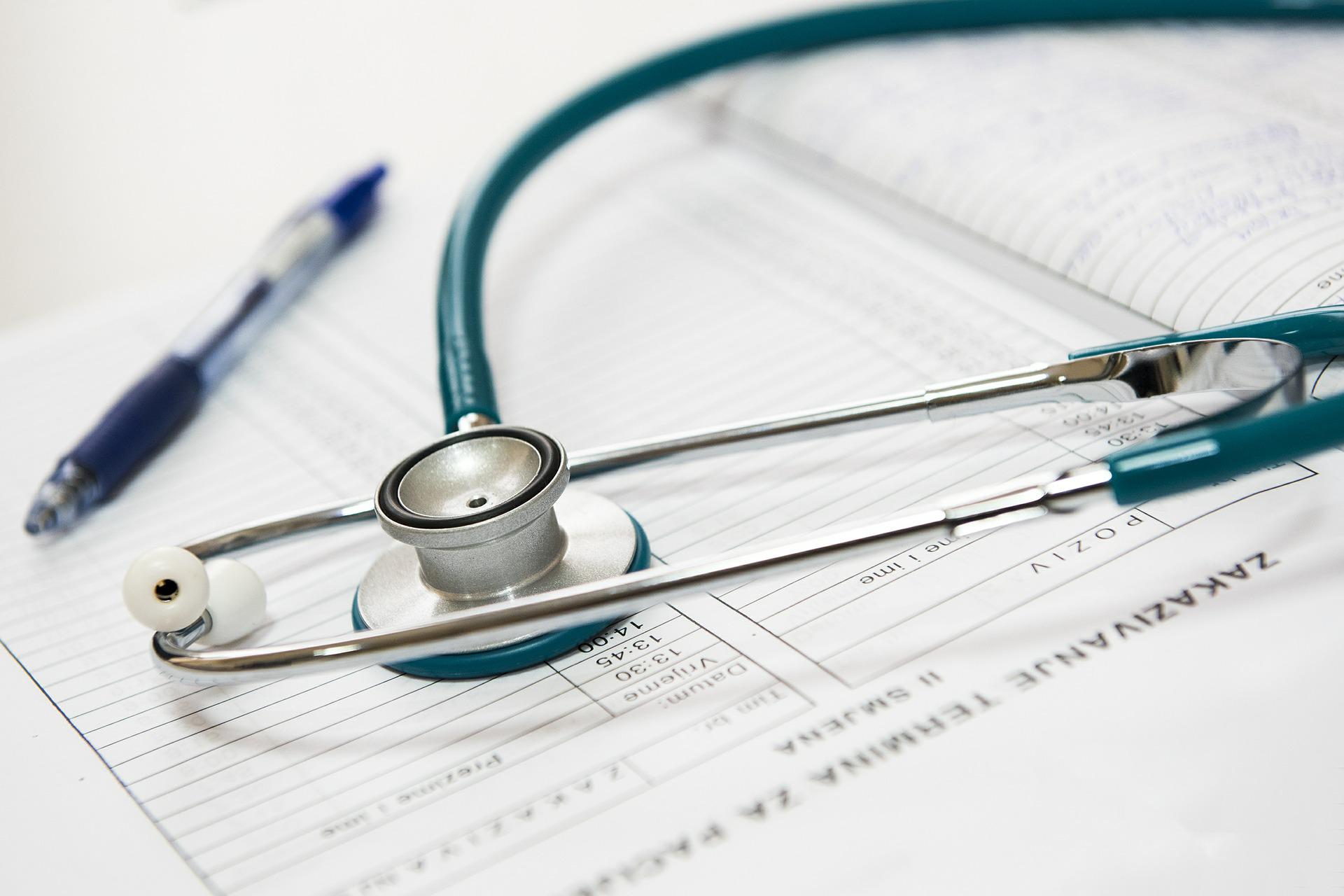Is Your IT Team Helping You Prepare for Disaster Recovery?
Hospitals, clinics, and other healthcare organizations need to prepare for the worst-case scenario. If they don't, they will suffer disaster losses that could amount to hundreds of thousands of dollars.
You and your staff may be more vulnerable to disasters than most types of businesses due to the sensitive nature of the work involved. Patients' health records, lab results, and insurance information are all critical pieces of data that must be protected 24/7.
Disaster recovery is a must in healthcare. However, a lot of medical practices don’t have a disaster recovery plan, and they never view it as a priority.
In this blog post, we’ll take a deep dive into the elements of effective disaster recovery, its benefits for your medical practice, as well as the risks of not having one.
What is Disaster Recovery?
Does your medical practice have a disaster recovery (DR) solution? How did your clinic respond to the COVID-19 outbreak?
As its name implies, disaster recovery can be defined as a set of processes that ensures that an organization is able to recover from a disaster in the best way possible.
DR is more than just backup. It's a comprehensive, efficient, and fast-response solution to get you back up and running in the event of a disaster.
DR can be considered as a subset of disaster planning. DR focuses on the actual process of restoring an organization to normalcy after a disaster. The goal is to have everything back up and running as soon as possible so that no business is lost.
Implementing DR involves:
- Developing a list of priorities for different disasters.
- Identifying any potential vulnerabilities or weaknesses that could be exploited.
- Creating an action plan that includes procedures for an emergency shutdown, communications, and restoration.
- Creating teams with different responsibilities such as a DR team and a business continuity team.
How Disaster Recovery Helps Your Practice
From a ransomware attack to a natural disaster like flooding or an earthquake, many potential disasters can occur. And when disaster strikes, it can have a devastating impact on your medical practice, leaving you wondering what your next steps should be.
DR allows your practice to continue providing care for your patients and their families—or at least minimize the loss of services—during a disaster.
A DR plan for a medical practice can also help improve security and lower the risks of data breaches. It can also help medical practices keep up with the industry's changing technology.
Does Your IT Team Provide a Disaster Recovery Plan?
A DR plan is a document that outlines the steps that the IT team should take in case of an emergency. This plan helps prepare for and mitigate any potential risks or damages that could arise from a natural disaster, system failure, or human error.
Unfortunately, many medical clinics do not have a DR plan in place even though it is necessary for maintaining daily operations and data security. This document should be updated and reviewed on a regular basis by all stakeholders involved.
The Elements of an Effective Disaster Recovery Plan for Medical Practices
Major disasters can disrupt your operations for an extended period of time. This can be mitigated by having an effective DR plan.
The following is a list of elements that can be considered to be part of an effective DR for medical practices:
Detailed Inventory
To ensure that the business can be put back online as quickly as possible in the event of a disaster, it’s important to have a detailed inventory of all hardware, software, data, network configurations, and other assets.
Your inventory should be updated regularly and stored offline in an off-site location.
Identification of Business-critical Assets
When developing a DR plan, your goal should be to make the process and its documentation as straightforward as possible.
One element that is often overlooked when developing a disaster recovery plan is business-critical asset identification. This process entails an analysis of the mission-critical business functions and data that must be recovered following a disaster.
This identification process aims to define which assets are critical (i.e. critical data, critical applications, critical hardware) and which assets are not (i.e. non-critical data, non-critical applications, non-critical hardware).
By identifying critical and non-critical assets, you can prioritize your efforts so that you can allocate your resources effectively. This determines whether or not you should backup an asset, as well as how often you should do so. If an asset is considered critical, it should be backed up more frequently than non-critical assets.
Data Backups
Data backup simply means copying your data to an external storage device.
Many clinics get into trouble when they are unable to get their data back after their computers crash.
The purpose of backing up your data is to protect it from potential disasters that could wipe out all your files or damage them significantly.
Cloud data backup can be used as an on-demand solution for storing, backing up, and restoring your most important files quickly and easily with minimal risk of disruption or downtime. If a disaster strikes, the company's data will be safe and accessible from any device with an internet connection.
Risk Analysis and Business Continuity Planning
Risks in the medical field are not limited to natural disasters; they also include cyberthreats.
Consider your risks and the impact they would have if they materialized. The next step is to create a business continuity plan. The recovery process from a disaster can take a long time, and you need to know what you need for a smooth transition.
An effective risk analysis involves the following:
- Measuring the probability that a given threat will be carried out against your organization.
- Estimating the potential damage the threat will cause.
- Determining the likelihood that you can prevent or mitigate further damage.
A risk assessment helps you prioritize which threats deserve attention and how to deal with them.
A business continuity plan ensures that the business can continue working for some time without interruption, even if it faces an emergency or disaster.
Whatever kind of disaster strikes your organization, you need to be prepared by having a proper business continuity plan in place that’s regularly updated with the most recent information about potential risks.
Testing and Optimization of Your Disaster Recovery Plan
Medical practices need to have their DR plan tested on a regular basis to verify that it will work in the event of an actual disaster. They also need to be sure that their IT systems are optimized for maximum protection.
Ideally, the plan needs to be tested every six months. Testing should be done by a team of experts who are familiar with the IT infrastructure and can identify any possible issues that could arise during a real disaster.
After testing the DR plan, it needs to be optimized for improved efficiency. This could involve restructuring any systems that need improvement or updating older parts of the plan to reflect current needs.
The Risks of Not Having Disaster Recovery
Downtime can put your practice in a compromising position. Not only will you miss out on revenues, but you will also suffer the following:
Complete Data Loss
Data loss in the healthcare industry is not an unusual phenomenon. It can happen because of natural disasters, cyberattacks, accidental deletions, and many other factors.
DR not only protects your data from ransomware attacks, but also saves a significant amount of money. Keeping backups of your data may cost you extra, but not having a backup at all could lead to financial losses that would take years to recover from.
Expensive Fines
Losing your healthcare data, whether intentionally or by accident, can result in expensive fines.
If an organization is subject to the Health Insurance Portability and Accountability Act (HIPAA), there are potentially costly penalties for lost or stolen data.
These heavy fines for HIPAA violation can be as much as $50,000 for a first offense if it was an accident, and potentially higher if intentional.
Damaged Reputation
You will definitely hurt your reputation if your patients and colleagues find out that your practice has been shut down by a cyberattack or any other unexpected event. And if anything happens to one of your patients as a direct or indirect result of this, you might not be able to recover from the damage.
It takes effort to maintain a good reputation, but it takes a whole lot more to repair a bad one. A damaged reputation can cost you and your practice in many ways.
Disasters are inevitable. If you don’t have a DR plan in place, it’s only more difficult to get the company back on its feet after that disaster has struck.
Loss of Patient Confidence
The healthcare industry is a lucrative yet fragile industry. It takes a lot of time and effort for a healthcare organization to build up devoted patients.
If a disaster damages or shuts down your clinic, it can cause patients to be wary about continuing with treatment. Future patients will also be reluctant to come to you because they may wonder whether or not you're trustworthy.
DR is crucial for healthcare organizations to stay one step ahead of catastrophes and not risk losing patients.
Revoked Medical License
This might sound drastic, but you could lose your medical license if your patient data is stolen, depending on the extent of the data breach.
You are entrusted with your patients' private information. So, getting compromised due to lack of DR can have serious consequences, sometimes even
resulting in a patient's death.
If you're a medical professional, you know that disasters can strike at any time. You also know that even one mistake can close your practice permanently. If you don’t have disaster recovery in place, you put yourself at risk of lost productivity and income, as well as having your license revoked.
The Benefits of ER Tech Pro’s Disaster Recovery Solution
Disaster recovery involves an organization's ability to handle, recover from, and respond to situations that negatively impact its operations. With our DR services, you can take advantage of these benefits:
Recover quickly and limit loss
We set up a disaster recovery plan to get you back up and running quickly in the event of any emergency.
Solutions tailored to your needs
We offer customized solutions based on your practice's unique challenges.
Protect your practice reputation
Patients will be more likely to trust your clinic if they see your practice's resiliency during a disaster.
Peace of mind for any type of incident
Our plans are designed to keep you up and running in the event of an outage, cyberattack, or other unexpected events.
We have you covered from all angles
We're always available to help, with on-site data recovery services, unlimited phone support, and remote monitoring.
Your data is secured 24/7
It’s not just about recovering from a disaster, but also about being proactive and securing your data from constant threats 24/7/365.

The Disaster Recovery Process
ER Tech Pros Can Get You Started With Disaster Recovery
When disaster strikes, the thing that matters the most is how fast you can recover.
Healthcare organizations are struggling to keep up with new technological demands. This is not necessarily a case of negligence. There is just not enough time and resources to do everything right round the clock.
We understand that DR can be too complicated to implement by yourself. Allow us to take care of this for you so you can focus on providing excellent patient care instead of worrying about DR and other IT challenges.
ER Tech Pros provide a one-stop disaster recovery solution specifically designed for healthcare systems. As a starting point, we can provide you with a free IT assessment to identify and address security gaps in your practice.
Search Articles












